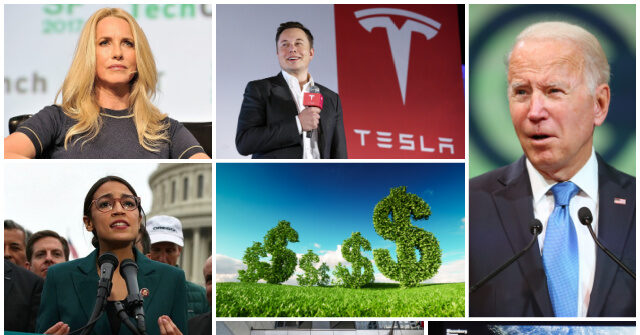
Big Investors Decide ESG Is an Underperforming Fad
Big investors increasingly see Environment, Social, and Governance (ESG) investing as an underperforming fad.
Bloomberg conducted its latest industry survey of its terminal clients, which generally include big banks, hedge funds, and other large financial institutions.
The survey found that 90 percent of 116 Bloomberg terminal clients who are not directly engaged with ESG expect the investment sector to underperform compared to market benchmarks in 2024, and 55 percent of those involved in ESG also believe it will underperform.
Sixty-nine percent of those not involved believe it is nothing more than a fad, with only 18 percent believing it will become more essential in business and markets, which is down 25 percent from the last Bloomberg survey.
“ESG has morphed from risk management to political activism for the left,” one respondent said.
Another Bloomberg terminal client said, “Our job is to provide returns for investors, not change the world.”
Approximately two-thirds of those surveyed say that the political backlash against ESG will force firms to stop using the term as they continue to advance environmental and social goals.
In June, BlackRock CEO Larry Fink said he no longer uses “ESG,” lamenting it has become politicized.
House Republicans on the Financial Services Committee led a series of hearings in July, in which they targeted the Securities and Exchange Commission’s (SEC) efforts to enforce more disclosure requirements relating to ESG. They also called for more strict oversight of proxy advisers.
Despite the backlash against ESG, 43 percent of those surveyed said that they are scaling back their investments in fossil fuels and 21 percent are planning to do so.
Bloomberg reported, “Another theme that emerged from the survey was calls to separate the E, S and G as “they don’t belong together as a group; they’re totally different and unrelated issues.” The majority agree that the fiduciary responsibility of financial firms is more important than ESG.”

